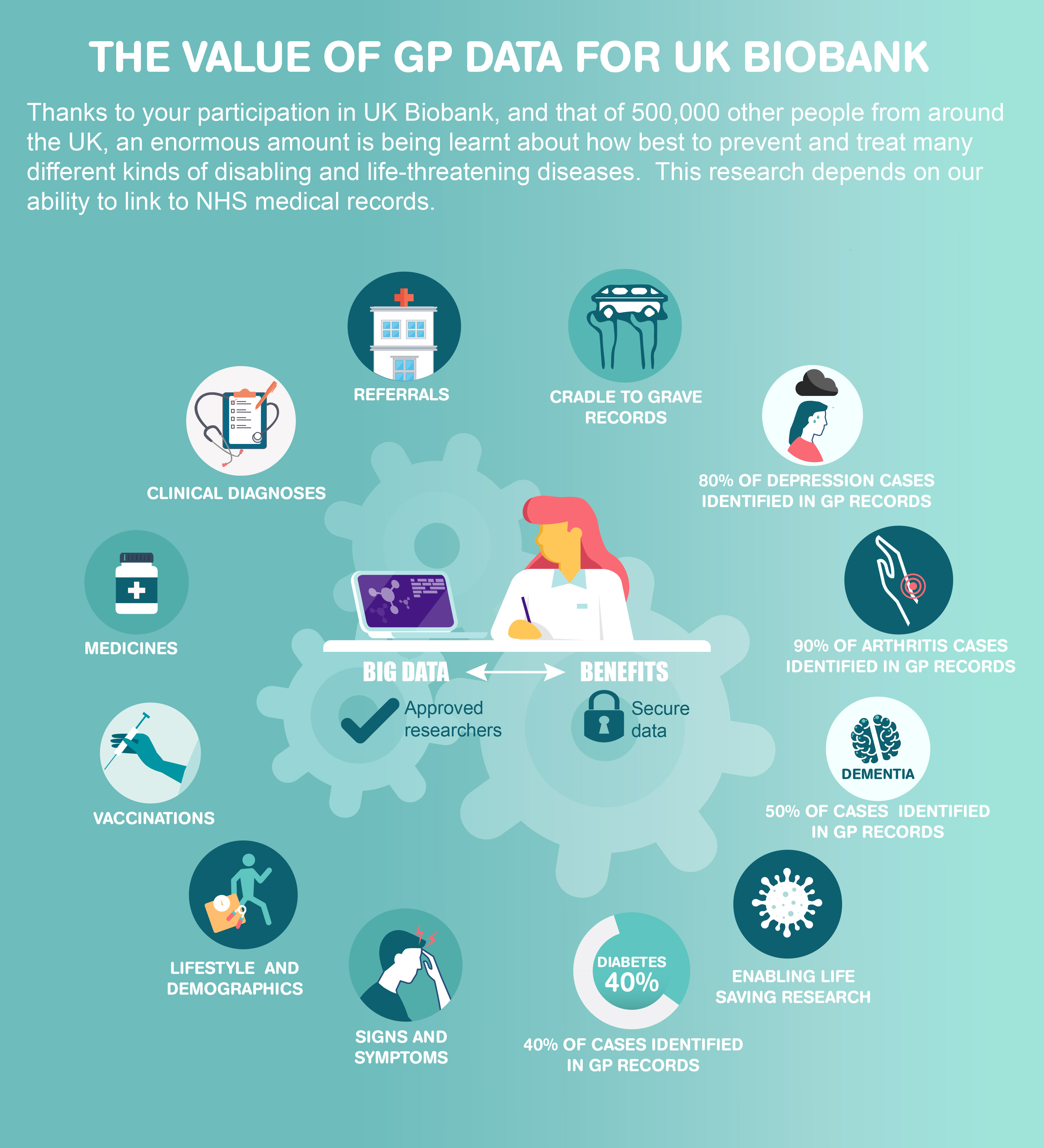The importance of sharing GP health data to enable research that saves lives
The importance of sharing GP health data to enable research that saves lives
UK Biobank's Chief Scientist, Professor Naomi Allen, explains the value of GP data
A note from UK Biobank's Principal Investigator, Professor Sir Rory Collins
There has been a lot of confusion in the media about the recently announced plan – called the General Practice Data for Planning and Research (GPDPR) – to add GP patient records to all of the other medical data that are already available centrally in the NHS for approved research and to improve health care.
I would like to provide you with some information about the relevance of GPDPR for UK Biobank. Thanks to your participation in UK Biobank, and that of 500,000 other people from around the UK, an enormous amount is being learnt about how best to prevent and treat many different kinds of disabling and life-threatening diseases. This research depends on our ability to access information about health outcomes that occur among UK Biobank participants through linkage to NHS medical record systems in accordance with the consent that you gave us when you first agreed to participate in UK Biobank.
For the past 10 years, we’ve been able to obtain information about all hospitalisations, cancer diagnoses, and deaths of UK Biobank participants from the NHS centrally. Combined with the information that you have provided us about your lifestyle and assays of blood samples that you provided (including genetic assays), researchers around the world have been able to make discoveries that would not otherwise have been possible. This research is done using a data-set which has had any identifying information removed (that is, it has been “de-identified”) in order to minimise the risk of anyone’s data being identifiable.
However, despite your explicit agreement that UK Biobank could have access to all of your medical and other health-related records for all types of health-related research that is in the public interest, we have not been able to obtain access to such data from General Practices (GPs). That is because the GP data are not all held centrally by the NHS, but instead are controlled by thousands of individual GPs. Despite our best efforts, we have not been able to get each of these GPs to give their approval for the release of these data, usually because they are too busy, not willing to help, or unsure about the rules on data sharing.
During the pandemic, emergency legislation has made it possible for UK Biobank to access the GP data of participants solely for the purpose of COVID-19 research. This access has demonstrated just how valuable the GP data can be for research using the UK Biobank resource. For example, it has enabled identification of various factors (such as obesity, prior acute kidney failure, and previous infections) that increase the risk of a person having severe COVID-19. However, it has also demonstrated what has been lost during the past decade by our previous inability to access GP data for research into other health conditions.
The central availability of GP data to help identify and deliver better ways of preventing and treating many other health conditions beyond COVID-19 would be hugely beneficial for the whole of the UK population. However, in our view, this value was not clearly explained when the GPDPR programme was first announced. Nor were the strict controls that are already in place before a person’s medical data are made available for approved research or other purposes, which has understandably caused concern.
My hope is that, by providing you with more information about both the benefits of making these data available and the safeguards that are in place to ensure their appropriate use, you will understand why UK Biobank supports NHS Digital’s plans to add GP patient records to all of the other medical data that are already available centrally. In particular, I want to encourage you not to opt-out of GPDPR because, if you do, your GP data would not be available – despite your original consent – to UK Biobank for research.
We have put together a set of answers to many of the common questions about GPDPR, but if you have any other questions then do email us directly at ukbiobank@ukbiobank.ac.uk.
Yours sincerely,
Professor Sir Rory Collins, FRS FMedSci FRCP
Principal Investigator and Chief Executive, UK Biobank

